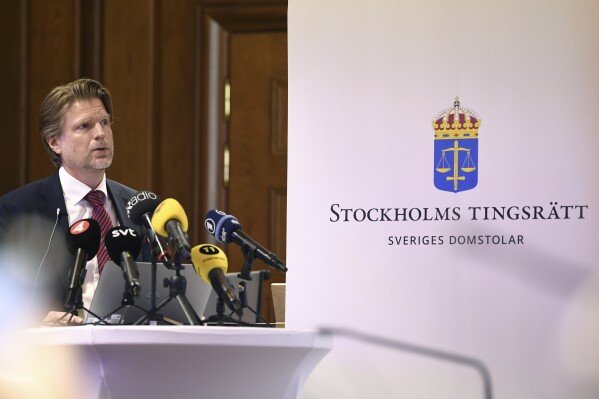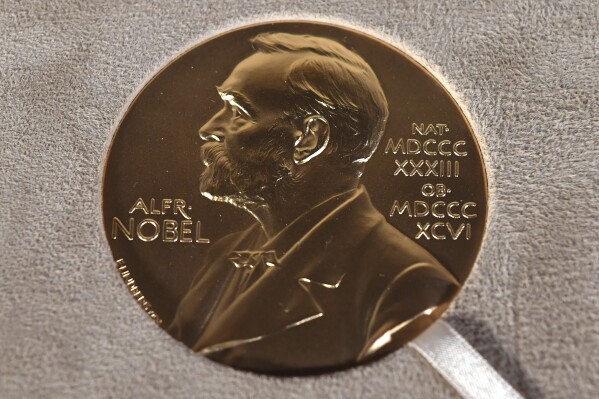Sweden’s central bank hikes key interest rate, saying inflation is still too high
STOCKHOLM (AP) — Sweden’s central bank raised its key interest rate Thursday, saying that “inflationary pressures in the Swedish economy are still too high,” although there were signs that inflation had begun to fall.
The Riksbank raised its policy rate by a quarter of a percentage point to 4% and said its forecast indicated that it could be raised further.
”Inflation is also falling in Sweden. The rate of increase in energy and food prices has slowed significantly, which is positive,” the Riksbank said in a statement.
But the bank added that “inflation pressures are still too high,” noting that service prices are still rising rapidly and Sweden’s currency, the krona, is “unjustifiably weak.”
 Swedish court upholds prison sentence for Turkish man linked to outlawed militant party
Swedish court upholds prison sentence for Turkish man linked to outlawed militant party
 Nobel Foundation raises the amount for this year’s Nobel Prize awards to 11 million kronor
Nobel Foundation raises the amount for this year’s Nobel Prize awards to 11 million kronor
 Things to know about Sweden’s monarchy as King Carl XVI celebrates 50 years on the throne
Things to know about Sweden’s monarchy as King Carl XVI celebrates 50 years on the throne
The Swedish currency has plunged to its lowest level ever against the euro and the U.S. dollar. Sweden has been struggling with high inflation — it was 7.5% in August, down from 9.3% in July, but far from the 2% target set by Sweden’s central bank.
“To ensure that inflation continues downwards and stabilizes around the target within a reasonable period of time, monetary policy needs to be tightened further,” the bank said.
Thursday’s interest rate increase meant that the policy rate is at the highest level since October 2008, the Swedish news agency TT wrote.
Central banks worldwide have been hiking borrowing costs to fight inflation sparked by the rebound from the COVID-19 pandemic and then Russia’s war in Ukraine, which pushed up food and energy prices.
Norway’s central bank also raised its policy rate by a quarter-point on Thursday, to 4.25%. Norges Bank Gov. Ida Wolden Bache said there “likely” will be an additional hike and “most probably in December.”
Inflation in Norway — which hit 4.8% in August — is above the central bank’s 2% target.
“Persistently high inflation imposes substantial costs on society,” Norges Bank said, adding that ”a somewhat higher interest rate is needed to bring inflation down to target within a reasonable horizon.”
The moves came on a busy day of central bank action. The Swiss National Bank kept rates steady Thursday, while financial markets were split over whether the Bank of England would impose another hike or hit pause.
A day earlier, the U.S. Federal Reserve left its benchmark interest rate unchanged for the second time in its past three meetings, a sign that it’s moderating its fight against inflation as price pressures have eased.
Disclaimer: The copyright of this article belongs to the original author. Reposting this article is solely for the purpose of information dissemination and does not constitute any investment advice. If there is any infringement, please contact us immediately. We will make corrections or deletions as necessary. Thank you.







